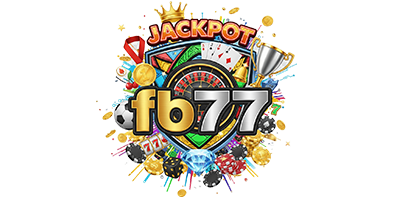philippine casino online what is it called when you bet against a stock
2026-01-15 14:52:44 new fb777 live
philippine casino online online casino is for everyone
Here at Betvisa Online Casinos, we have compiled an overview of online gambling in the Philippines for you. Regardless of your skill level, we have something for everyone. Stay to learn more about real money online casinos and what they have to offer. Then start your gambling journey on one of our recommended gaming platforms!

**Understanding Short Selling: Betting Against a Stock
**In the complex and dynamic world of stock trading, investors employ a multitude of strategies to capitalize on price movements in the equity markets. One particularly intriguing and somewhat controversial method is called “short selling.” This article delves into what short selling is, how it works, and the implications it has for the financial markets and individual investors.
### What is Short Selling?
Short selling, often referred to simply as “shorting,” is an investment strategy that allows traders to profit from a decline in a stock’s price. Unlike traditional investing, where a trader buys shares of a stock with the expectation that its price will rise, short selling profits when the stock’s price falls. Essentially, short sellers are betting against the stock.
### The Mechanics of Short Selling
To understand how short selling works, it is important to grasp its mechanics. Here’s a step-by-step overview:
1. **Borrowing Shares**: The first step in short selling involves borrowing shares of a stock from a brokerage firm. Typically, these shares are borrowed from the brokerage’s clients’ accounts or from other institutions that hold the stock.
2. **Selling the Borrowed Shares**: Once the shares are borrowed, the short seller sells these shares on the open market at the current market price, hoping to buy them back later at a lower price. For instance, if the trader sells 100 shares of a stock at $50 each, they raise $5,000.
3. **Buying Back Shares**: After some time, if the stock price declines as the trader anticipated, they can buy back the same number of shares at a lower price. If the stock drops to $30, the short seller buys back the 100 shares for $3,000.
4. **Returning the Shares**: The final step involves returning the borrowed shares to the brokerage firm. The profit from this entire transaction would be the difference between what they sold the shares for and what they paid to buy them back. In our example, the profit would be $5,000 (from selling) – $3,000 (from buying back), resulting in a profit of $2,000.
### The Risks of Short Selling
While short selling can be highly lucrative, it also carries significant risks. One of the most notable risks is the potential for unlimited losses. In a traditional investment, the maximum loss is capped at the total amount invested (if a stock goes to zero). However, since there is theoretically no cap on how high a stock’s price can rise, short sellers can incur massive losses if the stock price increases instead of falling.
For example, if the stock in our previous example rises to $70 instead of falling, the short seller would need to buy back the shares for $7,000, leading to a loss of $2,000. If the stock were to reach $100, the losses would skyrocket to $5,000, and so forth.
Additionally, other risks associated with short selling include:
– **Margin Calls**: Since short selling often involves borrowing shares, it typically occurs on margin. If the stock price rises significantly, brokers may issue margin calls, demanding that the short seller deposit more funds to cover potential losses or to increase collateral.
– **Short Squeeze**: A short squeeze occurs when a heavily shorted stock’s price begins to rise instead of decline. As the price rises, short sellers may rush to buy shares to cover their positions, leading to even higher prices, creating a vicious cycle that can lead to rapid losses for those shorting the stock.
### The Ethical Dimension
Short selling has sparked ethical debates within the investing community. Detractors argue that short sellers benefit from a company’s misfortune, particularly when they short stocks of companies facing financial difficulties, which might pressure management to take drastic actions.
Conversely, proponents of short selling claim that it plays a crucial role in market efficiency by helping to expose overvalued stocks. By allowing investors to bet against excessive valuations, short selling can serve as a check on corporate governance and practices, promoting transparency in the marketplace.
### Regulation and Short Selling
Considering its impact, short selling is subject to various regulations across different jurisdictions. In the United States, the Securities and Exchange Commission (SEC) monitors short selling practices and has implemented rules to increase transparency and curb abusive practices. These regulations include rules on short sale disclosures, and restrictions on short selling in times of market volatility.
The introduction of the uptick rule (which requires short sales to occur only after the last sale price increased) was aimed at reducing excessive short selling during downturns, although it was repealed in 2007. The discussion around such regulations continues as market dynamics evolve.
### Conclusion
Short selling is a sophisticated investment strategy that allows traders to profit from declining stock prices. While it offers the opportunity for significant gains, it also holds the potential for substantial losses, making it an approach suitable mainly for experienced traders who understand the associated risks. As the financial markets continue to change, the role of short selling in promoting market efficiency and transparency will remain a compelling and contentious topic among investors and regulators alike. Whether viewed as a speculative bet against a company or a necessary tool for maintaining a balanced market, short selling is an integral part of the tapestry of modern finance.

